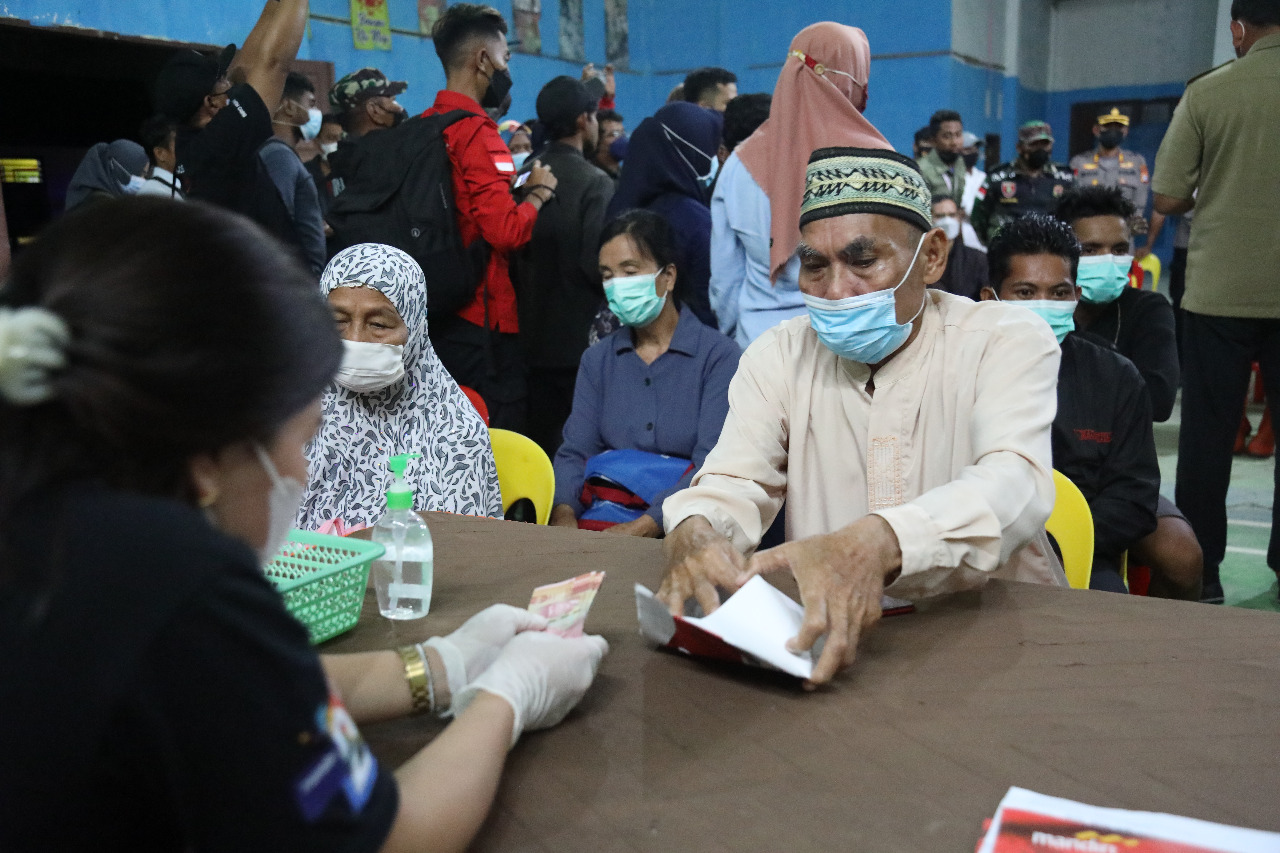Social Affairs Minister Encourages Community Participation to Monitor the Accuracy of Poverty Database

JAKARTA (16 December 2022) - Minister of Social Affairs Tri Rismaharini ensures that the Ministry of Social Affairs (MoSA) continues to strengthen efforts to improve the accuracy of the Integrated Social Welfare Data (DTKS). One of those efforts is to open public participation.
The Minister stated that she openly involved the community in data improvement. “Imagine that a very large budget must be allocated for data improvement. Meanwhile, in the regions, there are government apparatuses ranging from neighborhoods, hamlets, villages and so on. In my opinion, it's better for us to move the energy of our community," said the Minister when giving a speech in the "Political Leadership in Changing DTKS Policy" webinar, Thursday (15/12).
As a part of participation, MoSA added "suggest" and "rebut" features to the Cekbansos application. This innovation is to improve target accuracy and transparency in the distribution of social assistance.
"With this feature, people who truly need assistance yet are not registered as the beneficiary can access the "suggest" feature. Otherwise, if someone is not eligible yet registered as beneficiary, can access the "rebut" feature," said the Minister.
Activation of these two features opens wider access to the public and helps reduce inaccuracies in data collection. Namely, people who are eligible but do not receive assistance (exclusion error), and those who are not eligible but receive assistance (inclusion error).
This is also in line with the provisions in Law no. 13/2011 concerning Handling of the Poor which stated that poor people have the right to propose themselves for assistance. "These two features are also the implementation of the provisions in the law which provide an opportunity to get social assistance as long as they comply with the provisions," she said.
Another innovation was geotagging technology which is the verification of beneficiaries using satellite images whose results are photographs and numerical data. "We found beneficiary data that was not appropriate. For example, the house is quite nice and they have a car. For cases like this, we still submit data to the regions to be mentioned as 'not eligible'," said the Minister.
Updating the data is indeed the government's job. However, it will be more helpful with community participation. "In line with that, local governments need to increase their role in validation according to the mandate of the law," the Minister continued.
In addition, MoSA also encouraged the acceleration of poverty reduction with various empowerment programs. Now, beneficiaries under 40 years of age will be targeted for empowerment programs. "For beneficiaries under 40 years old, they will be transferred to the empowerment program. The reason is they are strong and capable to do so," said the Minister.
In general, the Social Affairs Minister's policies received positive responses from webinar participants. The researcher of the Institute for Development of Economics and Finance (INDEF) Eko Listiyanto who also acted as a speaker, acknowledged that there is progress in improving poverty data in the DTKS.
Technological innovations help improve data accuracy. "In the future, communication, coordination and synergy between central and regional governments need to be strengthened," he said.
As a form of recognition of progress in improving poverty data, MoSA received the 2022 Muslim Choice Award. The award was presented by the Muslim Choice media group.
Public Relations Bureau
Ministry of Social Affairs
 English
English
 Bahasa
Bahasa
